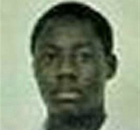Op-Ed Contributors
Hatoyama faces Catch-22 over American air base
By Ming Jing (China Daily)
Updated: 2009-12-30 07:51
 |
Large Medium Small |
Japan's decision to defer a resolution on shifting the Futenma Air Station has thrown US-Japan relations into a tailspin.
Last week, Japanese Defense Minister Toshimi Kitazawa said Tokyo had set May next year as the deadline for figuring out where to relocate the US Marine Corps' Futenma Air Station in the center of the densely populated Okinawa Island.
The ruling coalition will seek possible alternatives to the scenic Henoko district in northern Okinawa, where Japan and the US agreed to shift in 2006.
The new move reflects the strong opposition of the Social Democratic Party (SDP), the junior coalition partner in the Japanese government, to the Futenma facility's relocation to Henoko.
Tokyo's decision is certain to further irk Washington, which perceives the 2006 accord as "the only feasible measure" and has called for settling the Futenma issue by the end of this year.
| ||||
A Japanese-US ministerial-level working group meeting to examine the Henoko plan was put in limbo, and it seems unlikely that Tokyo and Washington could begin consultations on "deepening bilateral alliance" before next year's 50th anniversary to mark the revision in the Japan-US Security Treaty.
Japanese Prime Minister Yukio Hatoyama has stressed Tokyo's need to be on an equal footing with Washington, as his administration represents a departure from more than half century of the Liberal Democratic Party's rule. Tokyo has said that it is within its rights to lessen the excessive burden Okinawa has borne for hosting US military bases since the end of World War II.
Okinawa accounts for just 0.6 percent of the Japan's landmass, but half of the nearly 50,000 US troops in Japan are stationed there. Many Okinawans regard the Americans more as an occupying force than a guarantor of safety. From time to time, anti-US sentiment bubbles over. It did so in 1995 after a 12-year-old girl was gang-raped by three US servicemen, and again in 2004 when a Marine Corp helicopter from the Futenma base slammed into a university and exploded into a fireball.
In 1996, Tokyo and Washington agreed to shift the Futenma helicopter base, which sits dangerously in a dense metropolitan area, to a remoter site on the island. Subsequently, they drew up proposals to redeploy 8,000 Marines to the US territory of Guam in western Pacific Ocean.
But Hatoyama's Democratic Party of Japan (DPJ) had promised voters in the run-up to the Aug 30 election to the Lower House that it would review the Futenma plan with an eye on shifting the air station out of Okinawa prefecture or even Japan.
The SDP has even threatened to leave the coalition government if Hatoyama breaks his promise - a move that would deny the DPJ a simple majority in the Diet's Upper House. The DPJ does not have the two-thirds majority in the Lower House, either, which could have enabled it to override the Upper House's resolutions.
Thus Hatoyama has been forced to subordinate Japan's alliance with the US to his government's survival, at least until next summer's Upper House elections.
So far, Hatoyama's flip-flops, and the lack of coordination between views expressed by Foreign Minister Katsuya Okada and Defense Minister Toshimi Kitazawa have deepened suspicion that the Hatoyama administration is in disarray over Futenma.
The prime minister's popularity has started to slide, a trend that began after he wavered on whether to renegotiate the 2006 deal with Washington. On the flip side, there has been talk that the Futenma issue could create a serious rift in US-Japanese relations.
Some US officials seem to be patient with Japan's new government as it tries to figure out what it means by development of a "more equal" partnership with the US. But US Defense Secretary Robert Gates has been anything but patient, branding the relocation of Futenma non-negotiable and demanding its swift implementation. If the Marines do not get their new helicopter base, he has warned, Okinawa will not be able to wave goodbye to the 8,000 Marines supposedly bound for Guam,part of a broader realignment of US forces.
Hatoyama could float a compromise plan but options appear limited and trying to satisfy all risks satisfying none.
Analysts reckon while he has repeatedly emphasized Tokyo's "more equal" partnership with Washington in alliance management, that does not extend to Japan's military capability and defense burden. Ostensibly, he intends to keep asymmetrical reciprocity embedded in the bilateral security treaty: the US defends Japan, and Japan leases to the US many large bases that are essential to its global military posture.
Observers think Hatoyama may believe that the geostrategic value of the bases enable him to bargain for a major US compromise. If this approach does not work, and if the existing Marine base in Okinawa remains, Hatoyama can pass the buck to the US, thereby deflecting anti-base pressure from local residents. A more likely outcome is a messy, face-saving compromise followed by further procrastination.
(China Daily 12/30/2009 page9)












